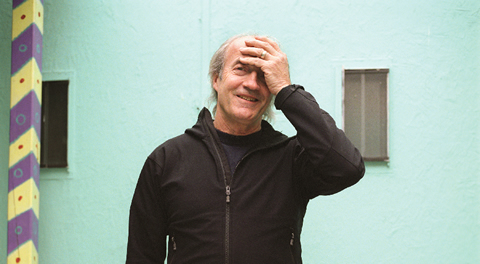Bill Buxton’s philosophy is that “design,” as a discipline, is about much more than deciding what colour a tea-kettle should be or the shape of a car’s headlights. Design, he says, is not about stuff, but about the experience of using it – the object’s social context, its value to us and its effect on the world around it. It’s a philosophy he’s put to work at Xerox’s Palo Alto Research Center, at Canadian software leader Alias/Wavefront and with his own Toronto design studio. And it’s a philosophy that makes him “one of the world’s most influential designers,” according to businessweek.com (where he’s also a regular columnist on design and innovation). Now he’s working on his biggest canvas yet as principal researcher for software giant Microsoft.
A musician by training, Buxton (MSc 1978) gravitated to computer science partly because of his interest in digital instruments. In 1975, he came to U of T as an informal “artist-in-residence” in the computer science department, experimenting with new ways of making music with computers. “We were all kind of outlaws within that department,” Buxton says of his and his colleagues’ time there. “We were deemed to not be doing serious things.” But through their research, Buxton and his peers ended up solving thorny problems in computer graphics and user-interface design, such as how to edit musical scores on a computer screen (they were experimenting with multi-touch surfaces – now made ubiquitous by iPhones – as early as 1984). The experience cemented Buxton’s opinion that most significant innovations typically happen unintentionally, while pursuing something different. “That’s why we were so successful,” he says, “because we were playing – we weren’t consciously trying to do great computer science, we were just totally captivated by trying to do great animation and great music. The contributions we made to computer science were unintended consequences. To paraphrase Oscar Wilde, these things are too important to take seriously. You have to have the freedom of play to be able to explore things thoroughly.”
That is also why Buxton now focuses as much on corporate culture as individual products: he wants to create workplaces where happy accidents, useful failures or sudden inspiration can mix, leading to innovative ideas. That means studying intuitive computers, such as tabletop displays that users can manipulate with their hands or objects, or sophisticated teleconferencing systems that allow co-workers in different places to collaborate as if they were in the same room.






